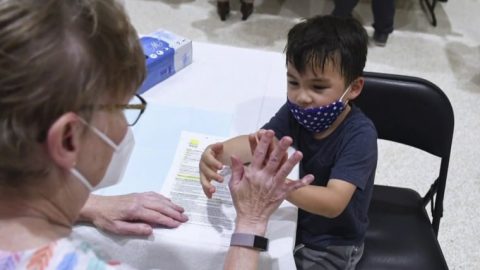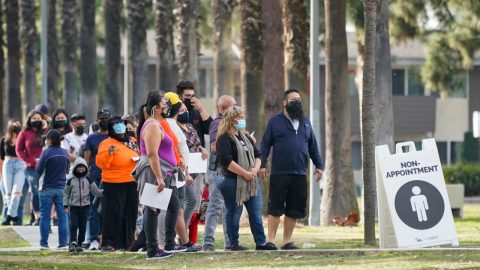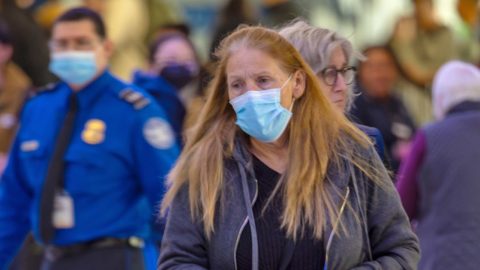A review of research published Monday in the journal Nature Medicine describes the potential long-term effects of the coronavirus on the entire body, highlighting the challenges long-haulers face in their recovery.
The review outlines in detail every organ affected by long-term Covid-19, including the lungs, heart, kidneys and skin, as well as the gastrointestinal, neurologic and endocrine systems.
Full coverage of the coronavirus outbreak
The publication comes at a time when dozens of post-Covid clinics have been established across the country, catering to Covid-19 patients whose symptoms have persisted for months on end.
“With the recognition of more multi-organ effects of this virus, the need for multidisciplinary care is becoming more evident,” said Dr. Kartik Sehgal, one the paper’s authors.
Sehgal, a medical oncologist at the Dana-Farber Cancer Institute in Boston, turned his attention away from cancer when the pandemic began last spring. “We all kind of came together as an entire field of doctors to take care of the surging needs in the hospitals to care for Covid-19 patients,” he said.
While the majority of long-haulers were never sick enough to be hospitalized, the review found as many as a third of patients hospitalized with Covid-19 have experienced long-term symptoms.
“It is clear that care for patients with Covid-19 does not conclude at the time of hospital discharge,” the study authors wrote.
The most common symptoms of long-term Covid-19 included fatigue, shortness of breath, brain fog, loss of sense of smell or taste, anxiety, depression and post-traumatic stress disorder.
There is no specific treatment for Covid-19 long-haulers. Many clinics are focused on physical therapy to treat symptoms.
The review suggests nutrition should also be a treatment target.
“We have certainly seen folks who are very malnourished,” said Dr. Greg Vanichkachorn, an occupational medicine specialist who treats long-haulers at the Mayo Clinic in Rochester, Minnesota.
Vanichkachorn, who was not involved with the report, said the fatigue many long-haulers have may be the reason why they don’t feel like cooking or eating. It also could be, he said, because many report an ongoing loss of taste and smell.
While long-term symptoms have been reported by as many as a third of confirmed Covid-19 patients, Sehgal pointed out that many people who were infected with the coronavirus may not know it. It’s possible, therefore, that many long-haulers are suffering without understanding the cause of their ongoing symptoms with brain fog or fatigue.
Download the NBC News app for full coverage of the coronavirus outbreak
Symptoms may be subtle, Sehgal said, “so if someone is presenting with symptoms which cannot be explained otherwise,” it may be important to consider Covid-19.
Dr. Elaine Wan, senior author of the review, as well as a professor of medicine at Columbia University Vagelos College of Physicians and Surgeons, said the report will change her practice.
“No matter what the patient comes in for, I now ask if they ever had Covid-19. It changes the possible range of diagnoses,” she said in a statement.
Vanichkachorn said future research will need to focus on what’s happening inside the body — at a cellular level — that leads to long-term Covid-19 symptoms.
Last month, the National Institutes of Health announced a billion-dollar research initiative into Covid-19 long-haulers.
“Once we do more research on this,” Vanichkachorn said, “I think we’ll have more opportunities for treatment and medications.”
Follow NBC HEALTH on Twitter & Facebook.











Recent Comments